From April 9–11, 2024, Guangzhou became the epicenter of global endourology innovation as the 20th IAU Endourology Workshop brought together over 120 leading urologists from 36 countries.
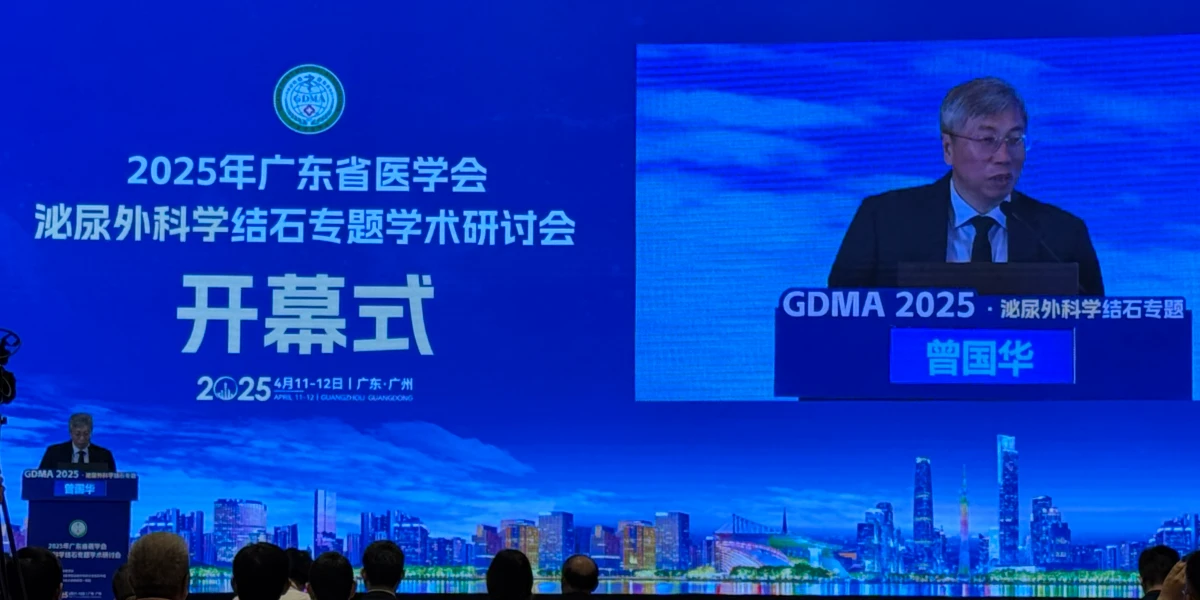
Jointly organized by the Guangdong Medical Association, International Alliance of Urolithiasis (IAU), Guangzhou Medical University, and its First Affiliated Hospital, the event highlighted cutting-edge advancements in stone management.
Among the standout technologies was Potent’s HP 120 High-Power Holmium Laser, equipped with revolutionary Cannon Double-Pulse Technology, which powered five live surgery demonstrations that captivated attendees.
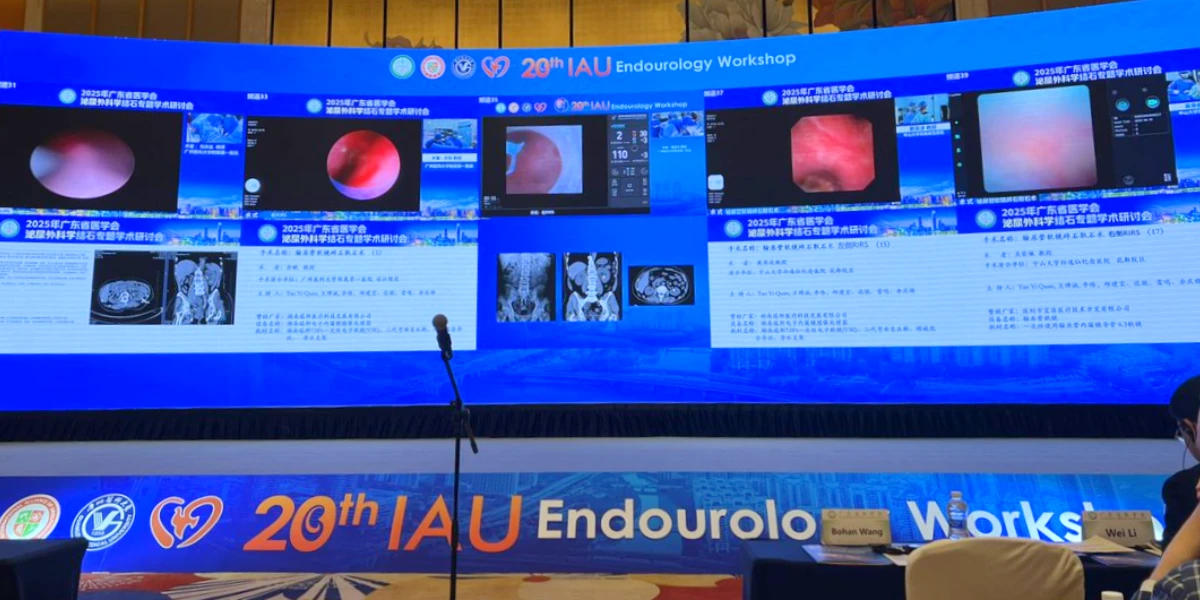
“Potent at the 20th IAU Workshop
We’re proud to have shared our latest urology laser innovations with experts from around the world.”
The HP 120 — equipped with 120 watts and Cannon double-pulse technology — delivered superior lithotripsy and advanced BPH treatment, reaffirming its role as a leader in urological laser surgery.
Result: Efficient stone fragmentation with less retropulsion, thanks to Cannon’s double-pulse energy delivery.
Significance: Highlighted the system’s ability to minimize ureteral trauma while maximizing efficiency.
Male, 41 years old
Diagnosis: Bilateral renal stones; right mid-ureteral stone; left upper ureteral stone
History: Previous right-side PCNL
Lab tests: Urine WBC 3+, negative culture, serum creatinine 102 µmol/L
Imaging:Right mid-ureteral stone: HU 1574, 10×9×9 m,Left upper ureteral stone: HU 1171, 16×7×13 mm
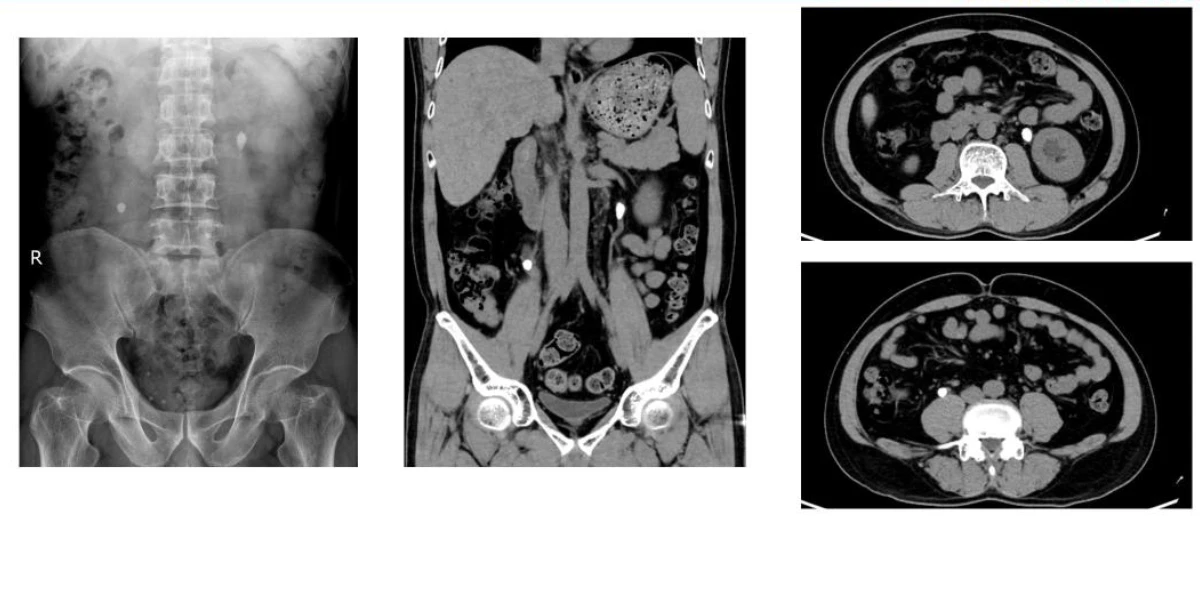
During a complex case involving multiple renal calculi with a high average stone density exceeding 1300 HU, the Potent HP 120 Holmium Laser System was employed in a combined PCNL (Percutaneous Nephrolithotomy) and URS (Ureteroscopy) procedure.
A 7.5 Fr flexible ureteroscope, combined with an actively deflectable suction access sheath, allowed accurate access to the lower pole calyces—often the most challenging anatomical site.
Leveraging the HP 120 system’s wide-ranging energy settings and high-frequency output , surgeons were able to efficiently fragment and dust dense, hard calculi that typically pose resistance to lower-powered systems. The system’s high peak power and pulse versatility provided stable fragmentation with minimized retropulsion, even in densely packed staghorn stones.
This case highlighted the system’s clinical strength in managing high-density calculi, offering both power and control, ultimately enhancing procedural efficiency and reducing operative time.
Male, 58 years old
Chief complaint: Left flank pain for 18 days
Physical examination: Vital signs stable; mild tenderness over the left renal region; no significant tenderness along the left ureteral tract
Imaging (Non-contrast CT of the urinary tract): Multiple left renal calculi, some forming staghorn configuration,Horseshoe kidney,Hepatic cyst
Laboratory results:
Urine culture: Negative
Urinalysis: White blood cells 112/μL
Others: Routine blood tests, serum biochemistry, coagulation profile, ECG, and chest X-ray all within normal limits
Stone density: Average CT value 1300 HU
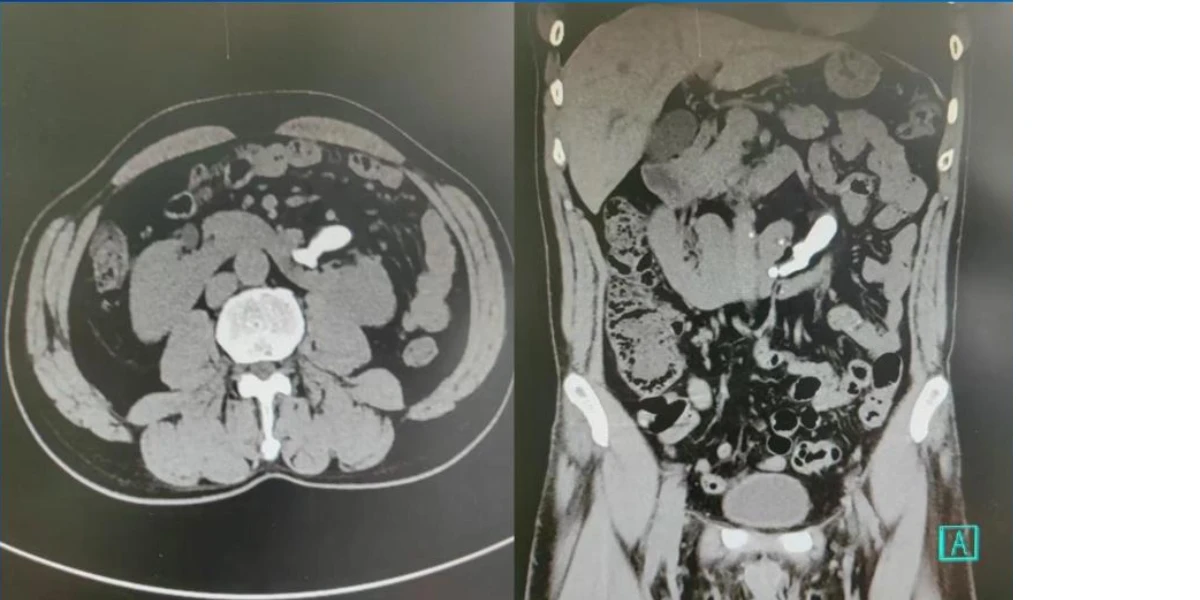
In this challenging RIRS case, Prof. Yu Xiao managed a high-density ureteral stone (~1000 HU) near the PUJ in a 47-year-old female patient. Severe ureteral congestion prevented access with a semirigid scope.
The surgical team switched to a 7.0Fr flexible ureteroscope and relocated the stone to the renal pelvis to minimize ureteral trauma. Lithotripsy was performed using the Cannon Double-Pulse technology at 1.0J × 20Hz.
Result: Efficient fragmentation with minimal ureteral injury, demonstrating the precision and clinical flexibility of the Potent High Power Holmium Laser System in managing high-CT ureteral stones.
Female, 47 years old
Chief complaint: Right upper ureteral stone detected 4 days ago
Physical examination: Vital signs stable; no renal angle tenderness; no significant tenderness over ureteral regions bilaterally
Imaging (Non-contrast CT of the urinary tract):1.Right upper ureteral stone,2.Right hydronephrosis,3.Right renal stone
Laboratory results:
Urine culture: Positive for Escherichia coli
Urinalysis: WBC 17/µL
Other tests: Routine blood work, biochemistry, coagulation profile, ECG, and chest X-ray all normal
Stone density: Average CT value 1000 H
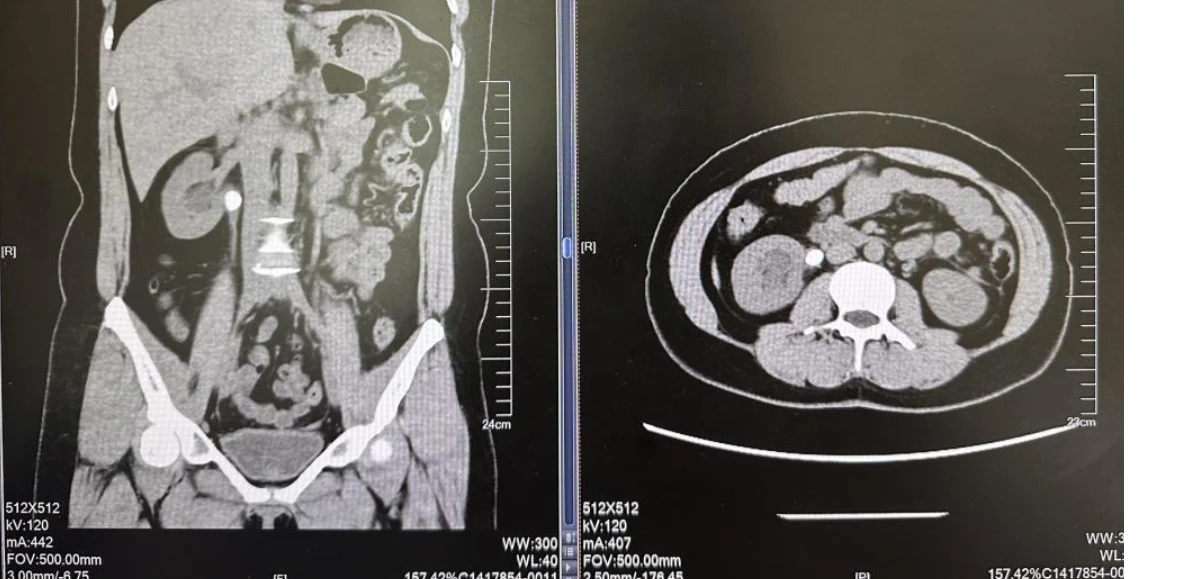
Prof. Zhu Wei of Guangzhou Medical University showcased the precision and efficiency of the Potent HP 120 Holmium Laser in a live RIRS procedure.
Leveraging Cannon technology’s optimized energy transmission, the system delivered superior lithotripsy performance with minimal retropulsion. This not only enhanced stone fragmentation efficiency but also eliminated the need for repeated stone repositioning, significantly streamlining the surgical workflow.
Female, 54 years old
Diagnosis: Right renal stone
History: Previous right-side RIRS; ureteral stent placement performed two weeks ago at our hospital
Lab tests: Urine WBC 3+, serum creatinine 71 µmol/L
Imaging:Right lower pole renal stone: HU 443, 14×7×10 mm

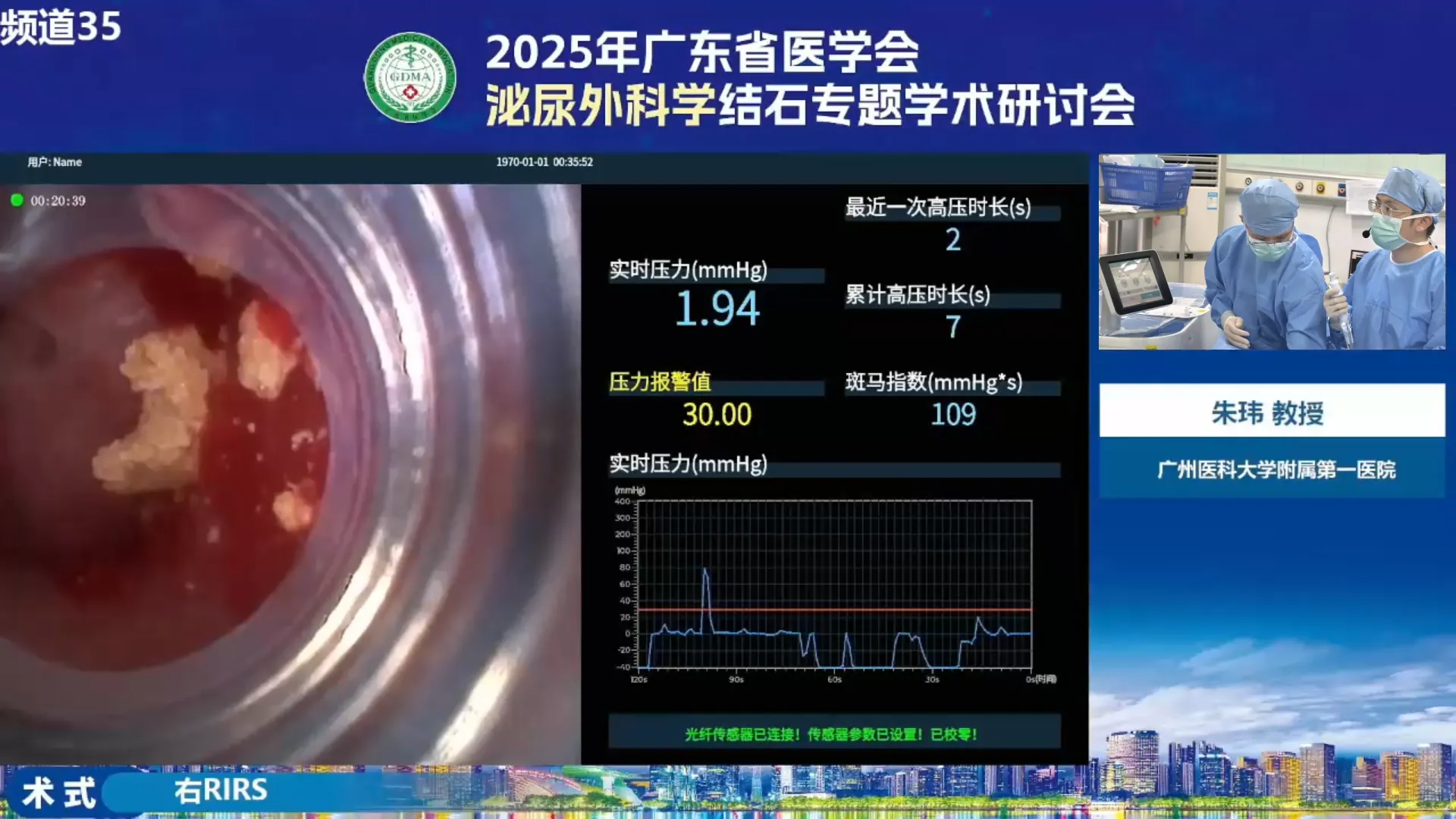
In this case, Prof. Zhao Zhijian (Guangzhou Medical University) performed a left Retrograde Intrarenal Surgery (RIRS) to manage lower pole calculi using the Potent HP 120 Holmium Laser.
The procedure benefited from the system’s 120W high-power lithotripsy mode and Cannon double-pulse technology, which provided stable energy delivery with minimal retropulsion.
This was particularly advantageous for targeting stones in the lower calyx, where access and scope deflection are limited. The reduced retropulsion helped maintain laser contact with the stone, improving efficiency and reducing operative time.
Male, 41 years old
Diagnosis: Bilateral renal stones; left upper ureteral stone
History: Previous bilateral RIRS and ESWL
Lab tests: Urine WBC 1+, negative culture, serum creatinine 99 µmol/L
Imaging: Left renal stones: HU 609, 16×10×5 mm,Left upper ureteral stone: HU 829, 20×9 mm

After witnessing the live procedures, numerous attendees visited the Potent Medical booth to dive deeper into our laser technology. The real-time surgical performance sparked enthusiastic discussions, with many surgeons expressing strong interest and appreciation for the HP 120 Holmium Laser. Several remarked on its precision and efficiency, highlighting its value in modern stone surgery. Their feedback reinforced Potent Medical’s role as a trusted partner in advancing endourology.
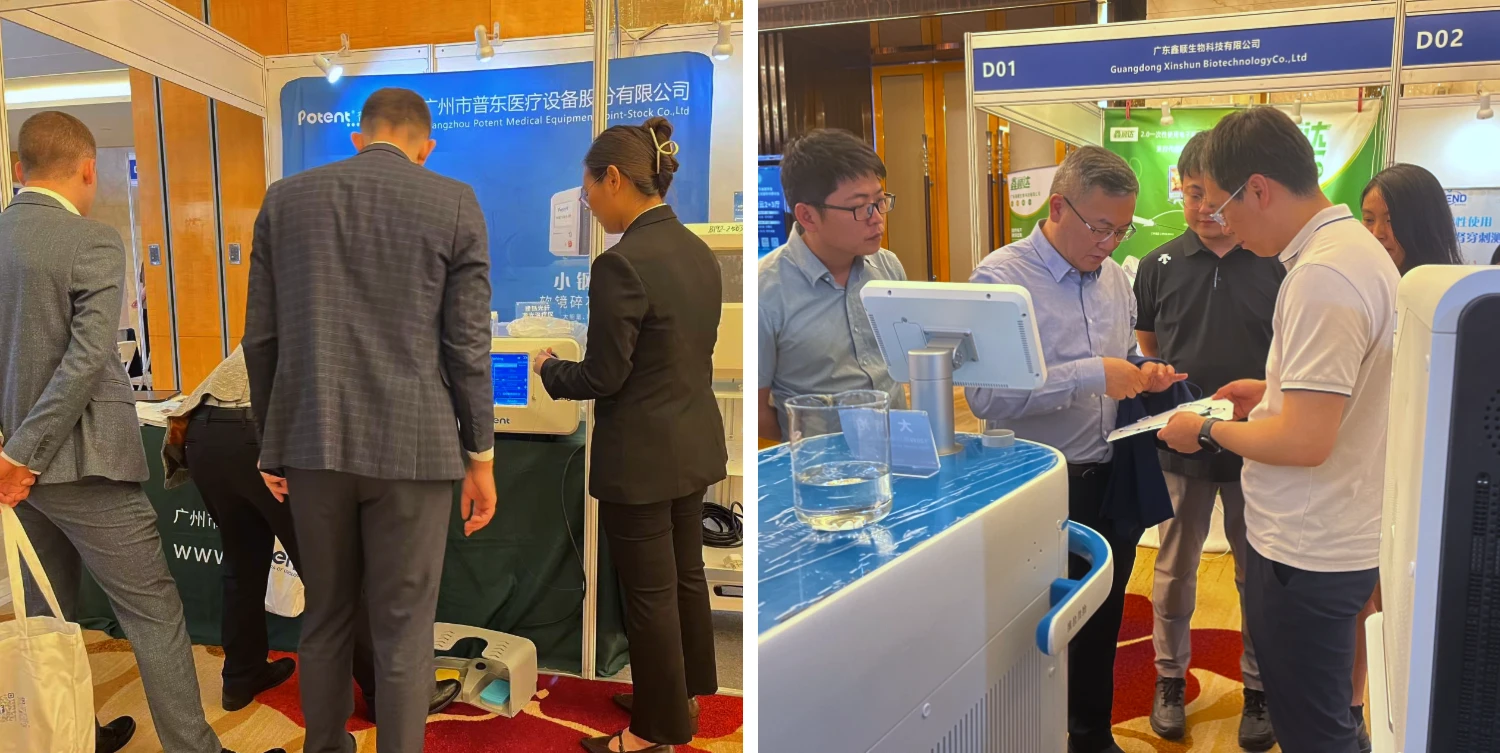
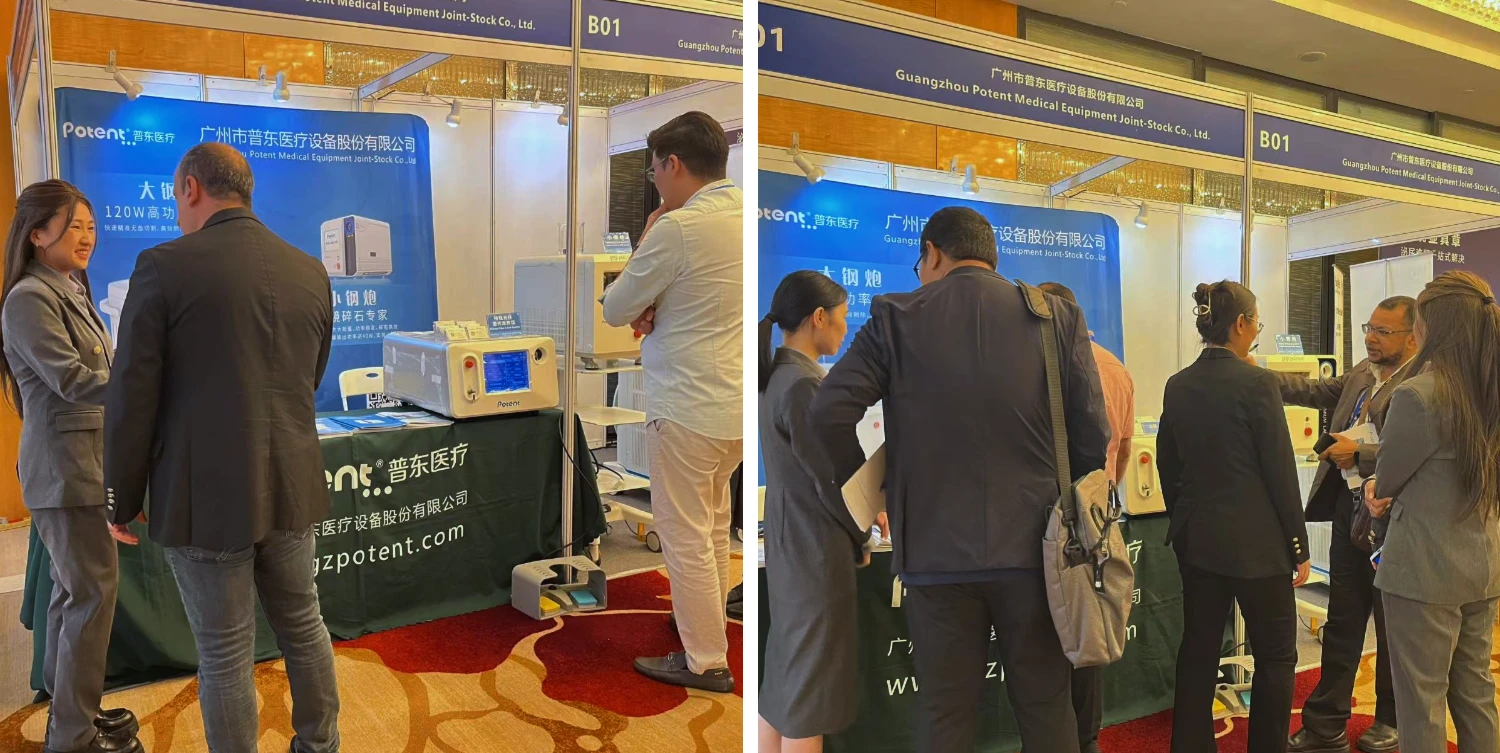
WhatsApp us